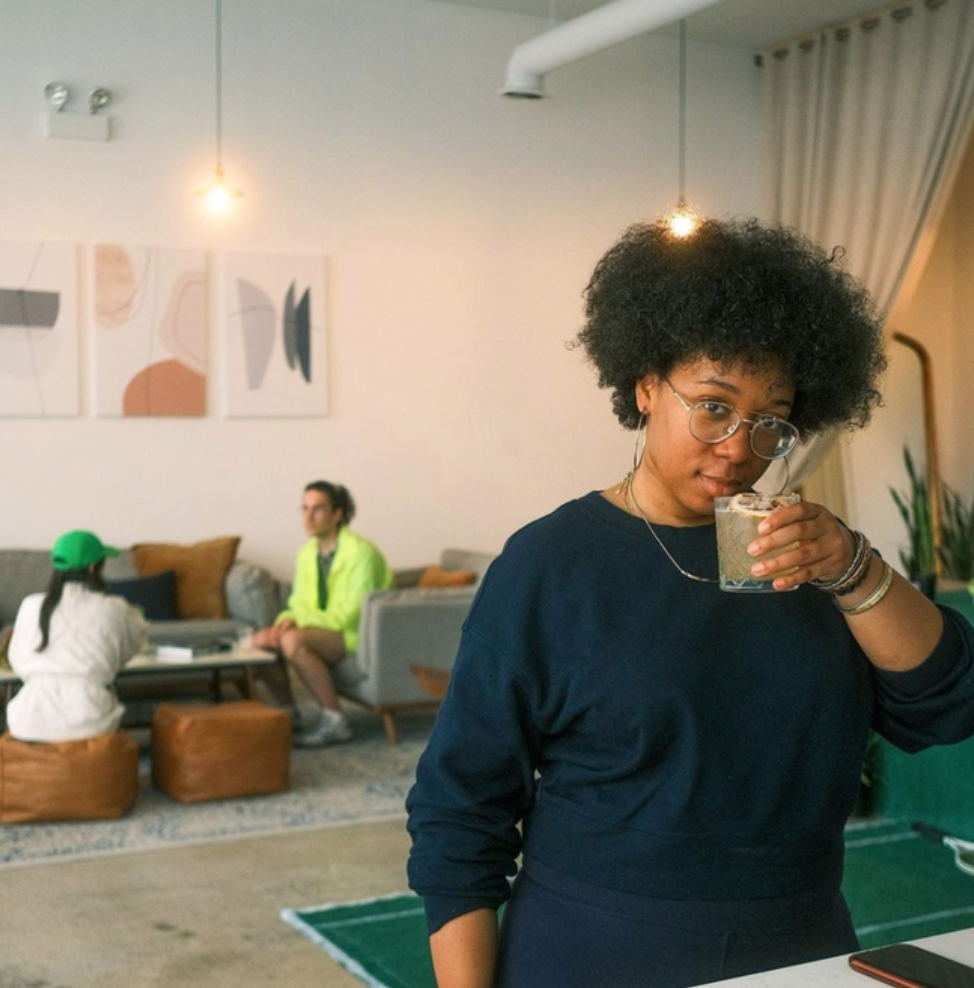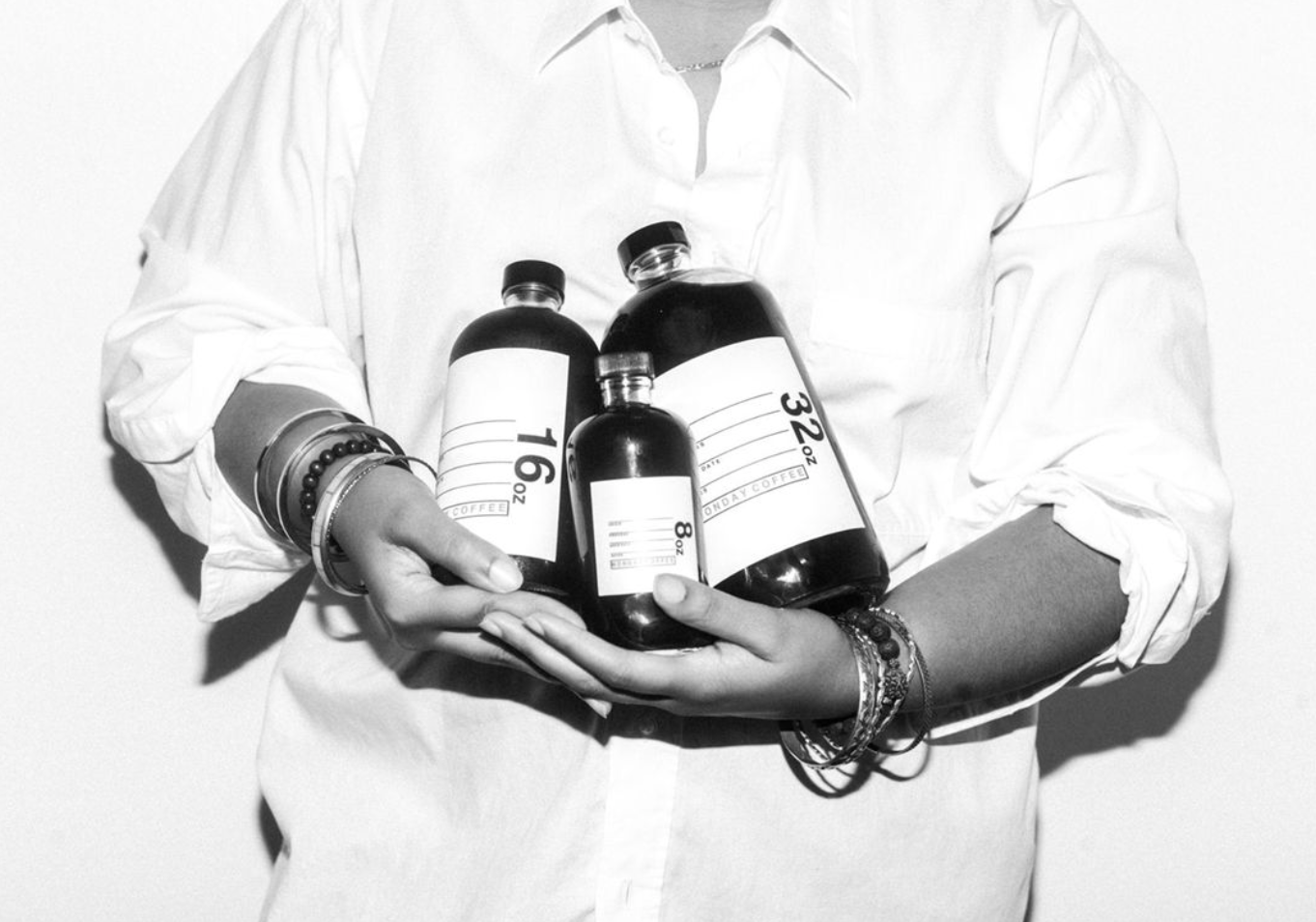Experiencing Food and Fashion Culture with Amanda Christine Harth
Business Feature: Amanda Christine Harth & Clothing Humans Co.
Amanda Christine Harth is a curator/designer at Wilakogu, co-founder of Monday Coffee Company, and the founder at Clothing Humans Company, AT*HUMANS. Through her multi-faceted approach to entrepreneurship, she is continually creating opportunities for underrepresented individuals, communities, and industries by providing access to resources that will empower their brands and give them a space to share their stories.
“I believe my work with food and fashion culture are all connected because of the relationships and memories we as humans associate with food and fashion. My goal is to provide people with space, products, and experiences to enhance their ways of living.”
Hey, Amanda! Thanks for taking the time to share about everything you are up to in Chicago and beyond. Can you start by telling us a little bit about yourself and how you found your way into entrepreneurship?
I always had multiple interests and was never really sure how to go about tapping into each interest properly. My background is in Fashion Design and after I graduated from college I took up an interest in menswear. The only issue was I wasn’t clear on how to run a business and market my products, so I took a step back to learn more about business infrastructure and how to tell the story of my brand. With that, I discovered other designers/creatives like me were struggling to share their stories as well and that’s when I started my first company Runwayaddicts. It’s since evolved into a holding company Clothing Humans Company and has several different concept brands affiliated with the company.
You are running multiple companies and projects simultaneously including Monday Coffee Company to Clothing Humans Co. Can you give a brief overview of everything you’re working on?
Sure thing! I’m the co-founder of Monday Coffee Co. and we launched last October with the intention of keeping people connected to loved ones in the midst of the pandemic. We sell cold brew, whole beans, and a coffee body scrub made from used coffee grounds. Clothing Humans Company is another endeavor focused on fashion education, encouraging a sustainable lifestyle for consumers, and product development.
It seems that everything is interconnected for you. What makes your coffee company stand out and how do you blend in your values of community and sustainability into it?
The majority of my work is people and community-driven and coffee turned out to be an easy way to connect with other people during the pandemic. I believe my work with food and fashion culture are all connected because of the relationships and memories we as humans associate with food and fashion. My goal is to provide people with space, products, and experiences to enhance their ways of living.
“The term “sustainability” has different meanings in fashion and the current industry hasn’t been able to create actual guidelines for businesses and designers to follow consistently. I think there is an opportunity to educate and equip emerging designers with resources to produce sustainable fashion and have established companies continue to consider what sustainability looks like for their business. ”
Meanwhile, you are running a platform promoting sustainable living and fashion education over at Clothing Humans Co. How did that come about and what are your visions for the platform?
Clothing Humans Co. was rebranded last October (formerly Runwayaddicts) with a similar mission to operate as a resource for independent designers and consumers alike. I believe like many people the pandemic gave me time to really think about what I wanted for myself and what I can actually contribute to the fashion industry. The term “sustainability” has different meanings in fashion and the current industry hasn’t been able to create actual guidelines for businesses and designers to follow consistently. There isn’t one solution to the problem and that can be a challenge as well. I think there is an opportunity to educate and equip emerging designers with resources to produce sustainable fashion and have established companies continue to consider what sustainability looks like for their business.
You’ve recently been invited to join the School of the Art Institute of Chicago and Homan Square to launch a research project around the intersection of Black History and Denim Culture in America. Tell us more about your focus areas and what brought you personally to this topic.
This residency is an opportunity to explore untold histories of Denim Culture in America and contributions Black Americans have made to Denim starting in West Africa and current streetwear influences. Applying traditional techniques to my practice gives me the chance to understand what new sustainable efforts can be applied to denim production that can help reduce water usage and other steps in the denim creation process.
What are some elements of the history of denim culture in America you hope to share? How does that relate to current street and denim culture that you see today?
Some people may not realize that before cotton and rice were major crops in the Southern region of the U.S. it was Indigo. Enslaved people from West African countries were in charge of growing Indigo plants and extracting dye from the plants to send to Great Britain to assist in the production of the military uniforms. Once a series of wars between Britain and Spain broke out the transportation process became more of a challenge and they began experimenting with growing other cash crops.
The Black experience is a major part of American history and has influenced fashion and denim culture. We see a more modern representation of this in the 90’s with brands like FUBU, Karl Kani, Walker Wear, Phat Farm, and baby Phat. These brands were able to take a textile used in workwear and make it a staple piece in the streetwear culture.
“The Black experience is a major part of American history and has influenced fashion and denim culture.”
What are some of your hopes and visions for the outcome of this project with SAIC and its influence on all of your current work?
My goal is to experiment with as many traditional design techniques throughout my residency so that I can apply them to my practice as a teaching artist and explore new techniques to apply to my teachings and production process.
Much of your work focuses on building community over shared values. What do you wish more people understood about your values of sustainability - both environmentally and culturally?
I wish more people knew how easy it is to lead a life with sustainable practices and how it’s all connected to basic human connection.
This last year and a half has been a challenge for many small businesses and creatives. What words of wisdom would you give past yourself (and to other mission-driven creative entrepreneurs) to help get you through?
The one thing I learned over the past year and a half was to trust myself and to understand timing is everything. So you have to plan accordingly and to be prepared as best you can for whatever changes occur in your endeavors.
How can we get more involved in your projects and support your work in the community?
I will be documenting my experiences in business and life over the next few months and will share it throughout the beginning of next year on social media and my websites. I have different opportunities taking place at the same time and my hope is to have people follow along with me on this journey.
You can follow the work of Amanda and her residency @AmandaChristineHarth and @SAICatHomanSquare. Join her at a Monday Coffee Club over at @DrinkMondayCoffee and read up on all the sustainable fashion news at @ClothingHumansCo.












